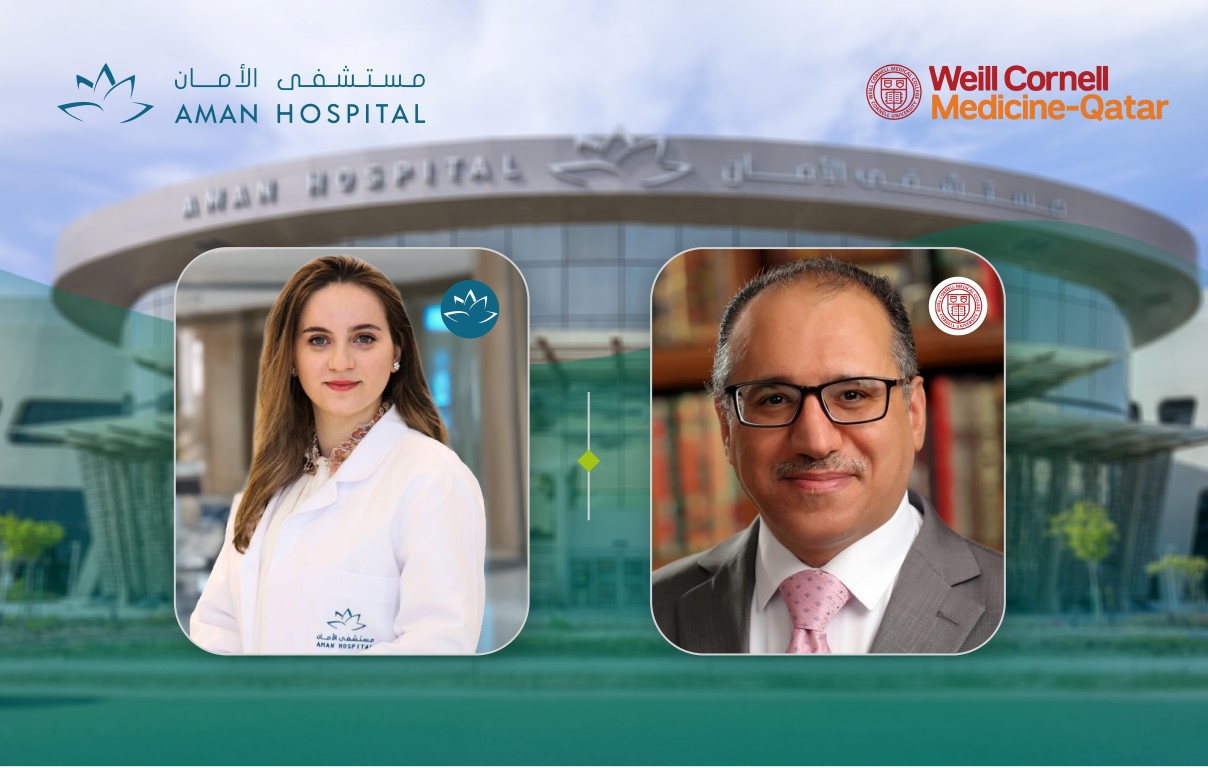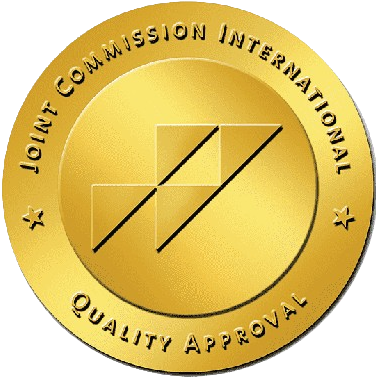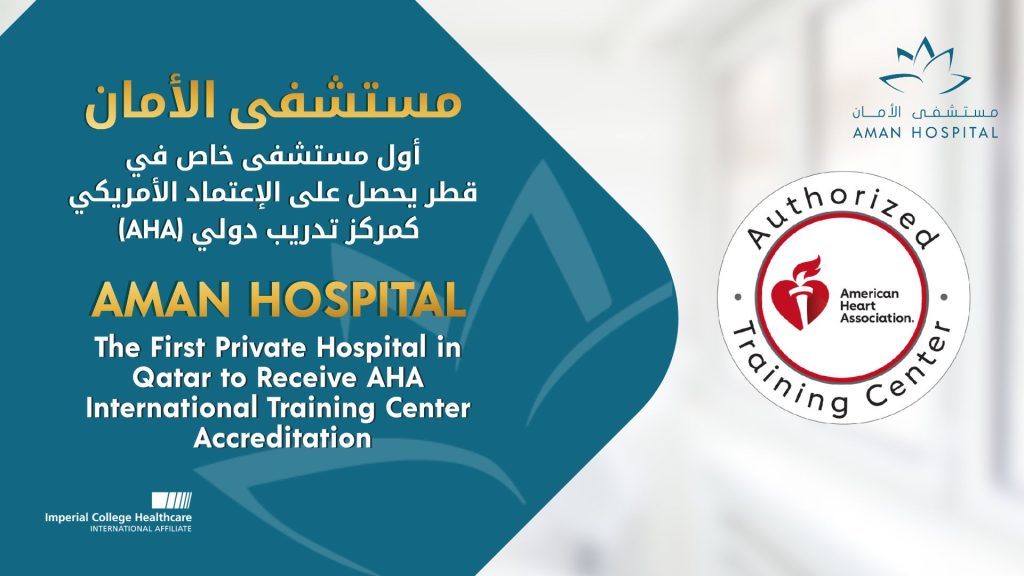
A pivotal study by researchers at AMAN Hospital and Weill Cornell Medicine-Qatar
(WCM-Q), published in The Lancet Diabetes & Endocrinology, reveals a strong, dose-dependent relationship between weight loss and the likelihood of achieving remission of type 2 diabetes—effectively reversing the condition—among individuals with diabetes and overweight or obesity. This global analysis synthesizes data from randomized controlled trials conducted across all world regions, delivering transformative insights into diabetes management and care.
Diabetes is a pressing and escalating global health challenge, affecting an estimated 537 million adults aged 20–79 years worldwide. As a major contributor to cardiovascular complications, diabetes ranks among the leading causes of mortality and long-term disability, exerting a profound toll on individuals and societies. Beyond its health impacts, it reduces quality of life and places a substantial financial burden on healthcare systems worldwide.
The study findings indicated that for every 1 percentage point reduction in body weight, the likelihood of recovering from diabetes increases by approximately 2 percentage points. For example, among individuals who achieved a 20% weight loss, over 40% experienced diabetes recovery, attaining blood glucose levels comparable to those without the condition. Importantly, demographic and clinical factors such as age, sex, diabetes duration, insulin use, initial hemoglobin A1c levels, and initial body weight did not reduce the likelihood of diabetes recovery following weight loss. These findings highlight the transformative potential of weight loss as a cornerstone of diabetes management, regardless of individual characteristics.
The study also found that for every 1 percentage point reduction in body weight, the likelihood of achieving partial diabetes remission increased by approximately 3 percentage points. For example, among individuals who achieved a 20% weight loss, 60% were no longer classified as having diabetes, either fully recovering or attaining blood glucose levels within the prediabetes range—a state associated with significantly lower risk of complications compared to living with diabetes.
Dr. Sarah Kanbour, lead author of the study, an endocrinology consultant at AMAN Hospital and a researcher at WCM-Q, stated: “Our study demonstrates that living with diabetes does not have to be a lifelong destiny, offering hope to millions affected by this condition. Diabetes can be reversed through weight loss. Remarkably, among those who achieved over 30% weight loss, 79% experienced diabetes recovery, enabling them to live healthy lives without the need for medications or the fear of diabetes related complications. The study also underscored the broader benefits of weight loss on glycemic control, even when full recovery is not achieved. By improving glucose regulation, weight loss can significantly reduce the risk of complications, solidifying its role as a cornerstone of diabetes management strategies.”
Dr. Laith Abu-Raddad, senior author of the study and Professor of Population Health Sciences at WCM-Q, stated, “The study’s findings offer a window of hope and an opportunity to counter the rising prevalence of type 2 diabetes, one of the most widespread diseases worldwide. The key to combating diabetes is weight loss, and we are in a transformative era with diverse interventions capable of achieving substantial
weight reduction effectively and with minimal side effects. Notably, the recent availability and expanding pipeline of highly effective weight loss medications present powerful tools to address obesity and enable diabetes recovery. However, it is critical that these medications become accessible and affordable to everyone worldwide who could benefit from them.”
Dr. Hussain Ismaeel, Chair of Medicine and Director of the Cardiometabolic Center of Excellence at AMAN Hospital, commented: “This innovative research highlights how cutting-edge scientific studies can directly influence healthcare delivery and enhance patient outcomes. It exemplifies our commitment to providing care that is firmly grounded in the latest scientific evidence and paves the way for advancing diabetes management while empowering our patients with the most effective strategies for achieving better health.”
The study, titled “Impact of Weight Loss on Type 2 Diabetes Remission: A Systematic Review and Meta Regression Analysis of Randomized Controlled Trials,” was made possible through funding from the Biomedical Research Program at Weill Cornell Medicine-Qatar and the Qatar National Research Fund under the National Priorities Research Program (NPRP 10-1208-160017).
– Ends –
About Weill Cornell Medicine-Qatar
Weill Cornell Medicine-Qatar is a partnership between Cornell University and Qatar Foundation. It offers a comprehensive six-year medical program leading to the Cornell University M.D. degree with teaching by Cornell and Weill Cornell faculty and by physicians at Hamad Medical Corporation (HMC), Aspetar Orthopedic and Sports Medicine Hospital, the Primary Health Care Corporation, the Feto Maternal Center, and Sidra Medicine, who hold Weill Cornell appointments. Through its biomedical research program, WCM-Q is building a sustainable research community in Qatar while advancing basic science and clinical research. Through its medical college, WCM-Q seeks to provide the finest education possible for medical students, to improve health care both now and for future generations, and to provide high quality health care to the Qatari population.
About Aman Hospital:
Aman Hospital is a private luxurious health facility at the forefront of elevating medical care in Qatar and the region, with a focus on a multidisciplinary team approach combining unparalleled professional expertise, cutting-edge technology and service excellence. Aman hospital offers a wide range of medical services covering more than twenty specialties. Aman Hospital has developed five centers of excellence, Cardiometabolic Center of Excellence, Ophthalmology Center of Excellence, Pediatrics Center of Excellence, Pain Relief Center of Excellence, and Women Wellbeing Center of Excellence; which all exceptionally provide personalized treatment plans and expertise dedicated to excellence in patient care. Aman Hospital is the first hospital globally outside the UK to become a member of Imperial College Healthcare and the first private hospital in Qatar to achieve JCI Accreditation.





